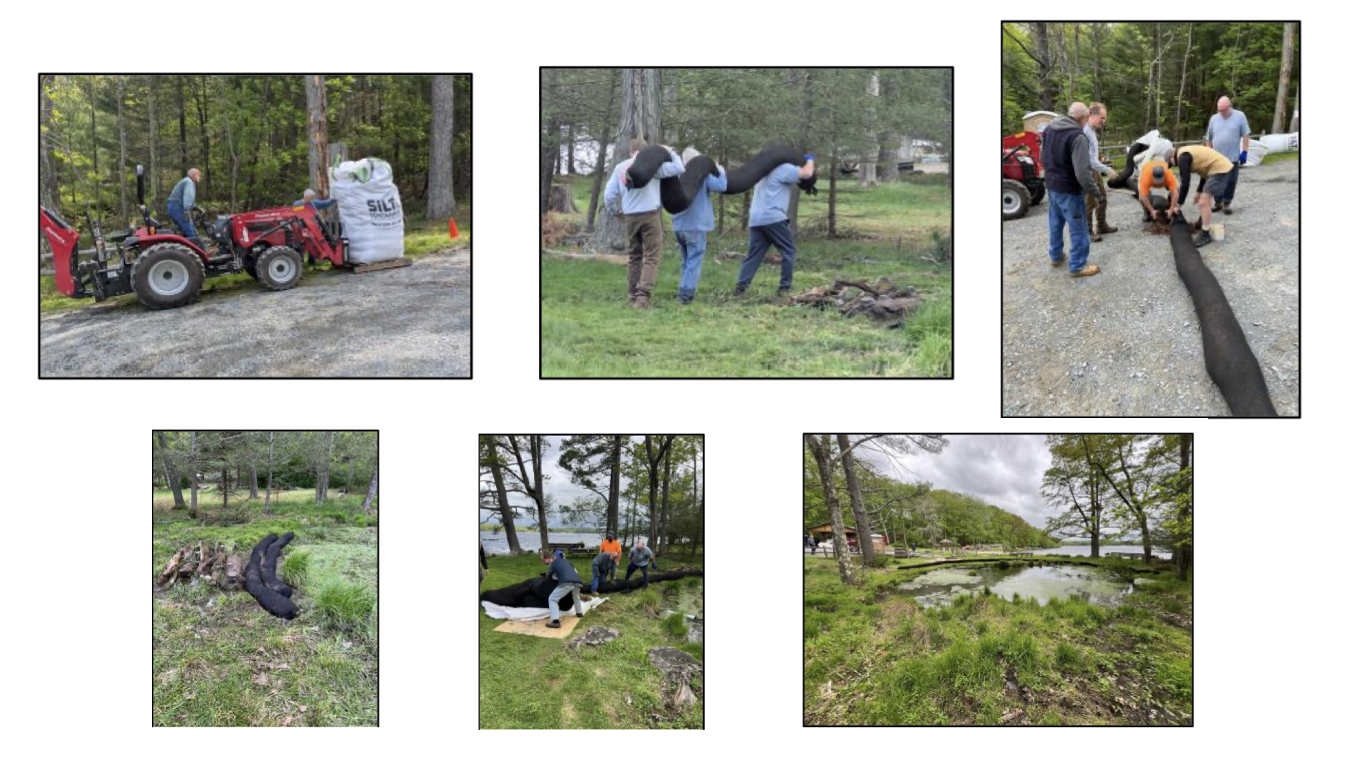Taking Action for the Health of Twin Lakes
Working Together to Solve a Long-Ignored Problem
For decades—since at least 1965—numerous reports and studies have identified serious concerns about drainage and stormwater runoff affecting the health of Twin Lakes in Shohola, PA. Despite these warnings, little meaningful action had ever been taken—until now.
Twin Lakes is home to nearly 600 residences, served by seven incorporated homeowners associations (HOAs), along with some properties that are not part of any of these HOA’s. Among these HOA’s is Sagamore Estates, where one of the most visible signs of progress has begun. Recognizing that stormwater runoff doesn't follow property lines, the Stewards of Twin Lakes have stepped forward—not as an HOA, but as a collaborative, volunteer-led effort focused on lake-wide environmental stewardship.
The Stewards believe that everyone who lives on, near, or enjoys the lakes shares a responsibility for protecting them. That’s why we’ve worked to rise above any single group or HOA “owning” lake issues. The lakes don’t belong to one association—they belong to all of us.
The Problem
Stormwater runoff—especially from paved roads, construction, and steep slopes—has been pouring unchecked into both the Big and Small Twin Lakes for years. Along with that runoff comes:
- Sediment that clouds the water and chokes out aquatic life
- Nutrients like nitrogen and phosphorus that feed harmful algal blooms
- Bacteria and pollutants like road salt that can affect swimming and water quality
These issues degrade habitat, stress fish populations, reduce water clarity, and ultimately diminish the value and enjoyment of life at Twin Lakes for all residents—whether they live on the water or nearby.
Stormwater runoff carrying visible sediment is flowing into Twin Lakes from both Sagamore and the overflowing Twin Lakes Park.
What’s Been Done
In 2024, members of the Stewards of Twin Lakes, including volunteers trained through the Penn State Master Watershed Steward Program (MWS), completed a comprehensive runoff assessment. We identified several priority problem areas where erosion and sediment were entering the lake. To learn more about specific runoff issues around the lake review the Twin Lakes Runoff Report.
One of the most urgent was a spring-fed pond that frequently overflows and carries sediment directly into the lake. This spring, a team of six volunteers—four MWS graduates and two MWS participants took action by:
- Installing silt sox and erosion controls
- Coordinating with PennDOT, the Pike County Conservation District, the Pennsylvania Environmental Council, and Penn State Extension
- Developing a plan for native plantings and long-term site monitoring
Stewards of Twin Lakes volunteers spending the morning installing silt socks by hand—digging trenches, driving stakes, and securing fabric to help prevent runoff into the lake.
Why It Matters
This is not just a one-time fix. It’s the beginning of a series of watershed restoration projects. For the first time, there is real momentum—and a dedicated, community-based group that is uniquely focused on the long-term health of Twin Lakes.
The actions we take now will determine whether our lakes remain clean, vibrant, and safe for future generations—or continue to decline due to inaction.
Silt socks installed to control sediment and reduce soil erosion and runoff into Twin Lakes with additional protective fencing that has been placed around the site
How You Can Help
We invite every Twin Lakes resident—regardless of your HOA affiliation—to join us. There are many ways to help, from planting native vegetation to spreading awareness or assisting with future projects.
To get involved, email us at: info@stewardsoftwinlakes.org
Visit our website: www.stewardsoftwinlakes.org
Let’s work together to protect the lakes we all love
The Stewards of Twin Lakes water shed runoff projects for Twin Lakes (Big and Little Lakes) is funded in part by a grant from the Pennsylvania Department of Conservation and Natural Resources Bureaus of Recreation and Conservation Community Conservation Partnerships Program administered through the Pennsylvania Environmental Councils Conservation Landscape Mini Grant Program.




